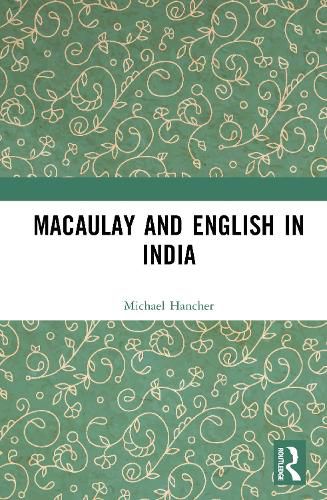Readings Newsletter
Become a Readings Member to make your shopping experience even easier.
Sign in or sign up for free!
You’re not far away from qualifying for FREE standard shipping within Australia
You’ve qualified for FREE standard shipping within Australia
The cart is loading…






This book traces how the English language emerged from the nineteenth century as not only an imperial and bureaucratic language but also as a global one. It highlights the role of Thomas Babington Macaulay and his 'Minutes' in this journey and his lasting impact on the English language and English studies. This work recovers the contexts of those interventions and assesses their far-reaching effects in India, in Great Britain, and in the United States. It explores a variety of themes including the early modern quest for a universal language; the European quarrel between the Ancients and the Moderns; the young Macaulay's precocious preference for the Moderns (despite his continuing infatuation with the Ancients); and Macaulay's more mature advocacy of a modern (English) rather than a classical literary curriculum. Further, it registers the ambivalent force of English, a "second language," on the development of Indian identity and culture; and it documents Macaulay's role in shaping the contested concept of "meritocracy," in England, in the United States, and in India.
The volume will be of great interest to scholars and researchers of modern Indian history, English studies, colonialism and imperialism, and South Asian studies.
$9.00 standard shipping within Australia
FREE standard shipping within Australia for orders over $100.00
Express & International shipping calculated at checkout
Stock availability can be subject to change without notice. We recommend calling the shop or contacting our online team to check availability of low stock items. Please see our Shopping Online page for more details.
This book traces how the English language emerged from the nineteenth century as not only an imperial and bureaucratic language but also as a global one. It highlights the role of Thomas Babington Macaulay and his 'Minutes' in this journey and his lasting impact on the English language and English studies. This work recovers the contexts of those interventions and assesses their far-reaching effects in India, in Great Britain, and in the United States. It explores a variety of themes including the early modern quest for a universal language; the European quarrel between the Ancients and the Moderns; the young Macaulay's precocious preference for the Moderns (despite his continuing infatuation with the Ancients); and Macaulay's more mature advocacy of a modern (English) rather than a classical literary curriculum. Further, it registers the ambivalent force of English, a "second language," on the development of Indian identity and culture; and it documents Macaulay's role in shaping the contested concept of "meritocracy," in England, in the United States, and in India.
The volume will be of great interest to scholars and researchers of modern Indian history, English studies, colonialism and imperialism, and South Asian studies.